If someone you know has come out to you as transgender (trans), you may be wondering how you can support them and the trans community. Trans people face many personal challenges. By understanding these challenges, you can take concrete actions to help them and the wider community.
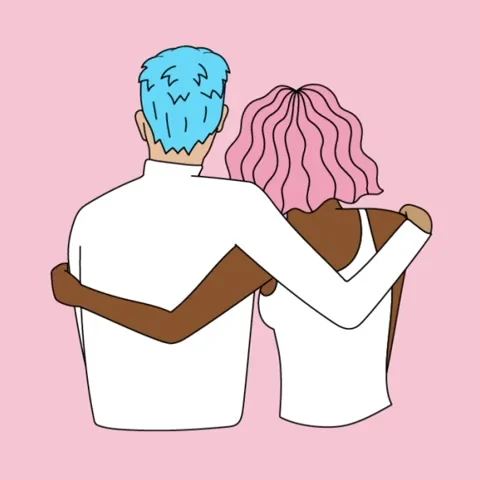
Childhood and Adolescence
Growing Up
While not all trans people know their gender identity from a young age, many describe a feeling of being different to their peers. They may have interests that don't align with their assigned gender. This difference may lead to a feeling of isolation from their same-gender peers, or even bullying and harassment.
Trans children may be exposed to negative language targeting trans people and may be pressured to conform to their assigned gender in terms of dress, gendered activities, and more.

Gender Dysphoria
Many trans people experience gender dysphoria, a feeling of distress due to the difference between their gender identity and assigned gender.
This can be due to biological differences, such as secondary sex characteristics that come as a result of puberty like facial hair and voice pitch. It can also include social dysphoria from being perceived as a different gender to how they feel they are, like being called the wrong name or pronouns.
Transitioning (both medical and social) can help alleviate gender dysphoria, but it is not always an option for minors, or all adults.
Quiz
Trans people may face personal difficulties because (select all that apply):
Coming Out
Trans people may choose to come out. This can open them up to opportunities to be more themselves, including identifying their pronouns or new name or changing their gender expression, but it can also open them up to harassment if people are not accepting.
Trans children
Some people come out while they're a child. Coming out in a school environment can lead to bullying, social isolation, and exclusion from activities like sports. Some trans children are kicked out of their homes or forced to go to conversion therapy or psychological intervention to change someone's sexual orientation or gender identity.
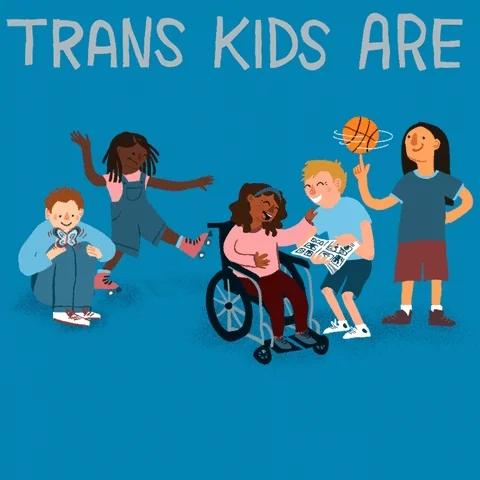
Quiz
Why might someone be hesitant to come out? Select all that apply:
Relationships
It's important to be supportive, but friends and family can sometimes struggle while adapting to changes in names, pronouns, and gender identity/expression. They may feel they've lost the connection with who someone was pre-transition or that they no longer know them.
Difficulties
There may also be difficulties with misgendering, deadnaming (using someone's birth name from pre-transition), using the wrong pronouns, or recognizing their own biases or transphobic beliefs.
It can take time to adapt to the changes, and if they're unwilling to respect someone's identity, the relationship may sour.
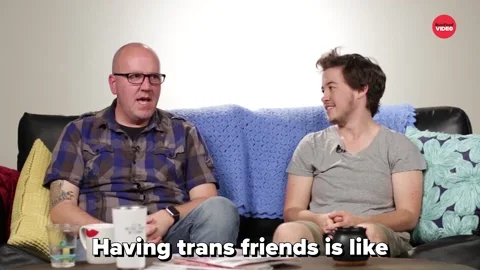
Employment
Trans people can face difficulties in the workplace as well. They may need to consider coming out to hiring teams, employers, and insurance plans that include transition coverage and extra paperwork if they have changed their name or gender markers.

Not all workplaces are inclusive, and not being able to come out at work can lead to further feelings of isolation, fear of discrimination, and frequent misgendering and dead-naming (using their old name). They may experience microaggressions as well or have to tolerate prejudiced workplace banter about LGBTQ+ people and stereotypes.
Transitioning
When someone comes out as trans, they may choose to transition, meaning they will start to live life as their authentic gender identity. There are two main types of transitioning: medical and social.
Medical transition can include hormone replacement therapy (HRT), surgeries, therapy, and other gender-affirming care.
Social transition can include sharing a chosen name and pronouns, legal changes to documents, buying gender-affirming clothes or accessories, and other changes to gender expression like hairstyle and make-up.
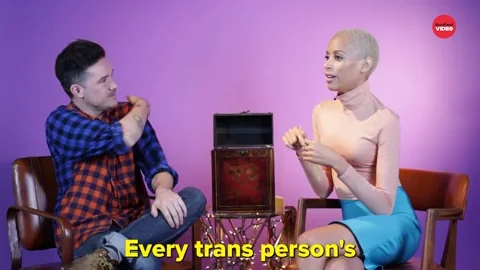
Challenges to transitioning
Not everyone wants to, or can, access these options for transition, whether that's due to medical conditions, lack of insurance coverage, waiting lists, legal barriers, permission from family members, financial costs, age or fear of ostracization.
For example, a school may require children to wear uniforms matching their biological sex rather than gender identity. Or, legislators may not allow children, those with other medical conditions, or any adults at all to access gender-affirming care at all.
Not being able to transition in the ways they want to can cause emotional distress for trans people.
Quiz
Your friend just came out to you as a trans man. Which of these will your friend definitely do in order to transition? Select any that apply:
Challenges from Gender Expectations
Gender expectations apply to trans people too. Once someone comes out as a trans woman, she may be expected to wear makeup, and a trans man may be expected to no longer wear skirts. Non-binary people may be expected to look androgynous.
"Passing"
Some people may even withhold acceptance of trans people if they do not "pass," which means they do not look like a typical, cisgender woman or man. Not all trans people want the same gender expression.
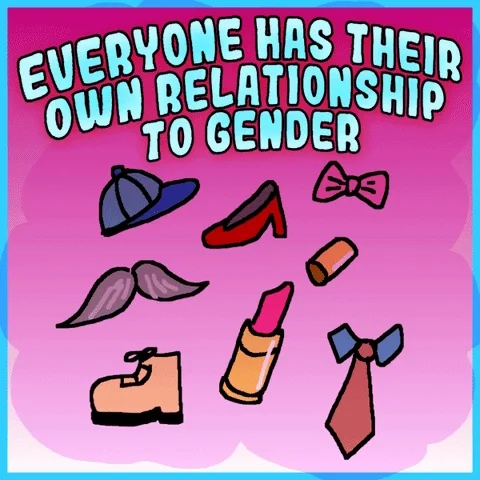
Being "clocked", which means being identified as trans, can put them at higher risk for violence and harassment, so there is pressure to "pass" and hide their trans identity.
Take Action
Although your friends, family members and peers in the trans community may face many personal challenges, there is still a lot you can do to help and support them.

Your feedback matters to us.
This Byte helped me better understand the topic.
